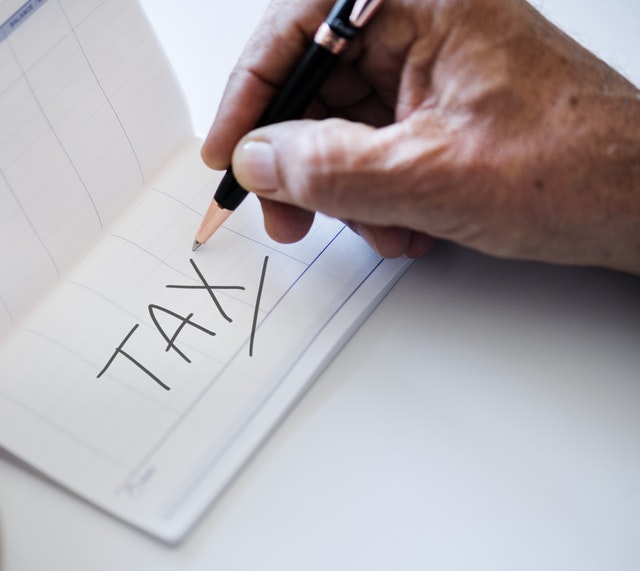Listen to the article
Tax Benefits of Investing in Real Estate
There is no denying that real estate has been able to produce some of the wealthiest investors.
Many were spooked by the 2010 foreclosure crisis, but the market has since picked up and the upswing throughout the years has been growing strong.
In addition to cash flow, real estate investments also open up many tax benefits.
The treasure trove of tax advantages, in fact, can cause Uncle Sam to become an investor’s best friend.
The trick is knowing what is available and how to capitalize on it.
In today’s article, we share with you 5 great tax benefits when you invest in real estate.
1. Deductions

Deductions are among the most significant tax benefits to real estate investors.
These tax benefits are usually geared toward rental properties.
Some of the categories of rental property tax benefits and deductions are as follows:
- Legal and Professional Fees: If you use any professional services, perhaps for legal work or accounting, those are deductible expenses.
- Property Management Costs: Generally, property management fees range from 7-15% of the gross monthly rental income.
- Supplies: This is somewhat miscellaneous. It can include anything from hardware to office supplies.
Examples include:
- Building supplies like plywood, bolts and nuts, and sheetrock.
- Cleaning supplies such as cleaning solutions, vacuums, mops and buckets.
- Maintenance supplies such as brushes, primer, spackle, and paint.
- Printer ink and paper, receipt books, binders and folders.
- Auto & Travel Expenses: Travelling expenses are tax benefits as long as they relate to your rental property. Generally, they are categorized into two: car-related expenses and other travel-related expenses.
- Homeowner Association Fees: Is your rental property located in a community that charges any kind of HOA fees? If so, they are tax deductible. Typically, the fees range from $200 to $300 for single-family homes. Of course, fees vary depending on various things such as the size of the unit, amenities included and the property’s location.
- Advertising & Marketing: The cost related to finding a tenant for your rental property is also tax deductible.
- Maintenance & Repair: The costs of maintaining, caring for, repairing and improving your property are also deductible.
- Utilities: If you have to pay for any utilities – water, electric, or gas, they would be a deductible expense. Other types of utilities include trash and recycling, sewer, air conditioning, and heating.
- Insurance: Any form of insurance is tax deductible. Examples of insurance types include flood insurance, sewer backup insurance, hazard and fire insurance, and liability insurance.
2. Depreciation

Depreciation is another significant tax benefit that applies to rental properties.
The depreciation deduction, according to the IRS, is defined as an allowance for normal wear and tear.
To know how much is available for you to deduct, you have to consider the following three factors:
- Method of depreciation used
- Period of property recovery
- The property’s worth
Typically, investors use the Modified Accelerated Cost Recovery System (MACRS) – a tax depreciating system.
As per the system, tax deductions are calculated on account of depreciation for depreciable assets.
Residential rental properties and commercial real estate are depreciated over 27.5 years and 39 years, respectively.
Let’s look at an example.
Let’s assume:
- Both the rental property and the land have a combined value of $300,000
- The land alone is valued at $150,000
- The property is residential
To determine depreciation, you’ll need to first subtract the value of the land from the combined value of the building and the land.
Then, you’ll need to divide the value of the building by the depreciation time frame. (This is 27.5 years, according to the IRS).
That is, $300,000 - $150,000 = $150,000. Then, $150,000/27.5 years = $5,454.54.
The result is the annual depreciation of your property.
3. Capital Gains

Capital gains are profits that you receive from an appreciation in the value of your investment, be it a rental, residential, or commercial property.
Capital gains tax is the tax on the capital gain. It’s only imposed when the actual capital gain is positive.
Generally, capital gains are taxed depending on whether the capital gains are short-term or long-term.
When it is short-term, you’ll need to pay taxes at your regular IRS-defined tax bracket.
This generally applies for gains on investment properties that were held for one year or less.
When its long-term, you’ll enjoy a more favorable tax rate than short-term gains.
This applies for gains on investment properties held for over one year.
Needless to say, long-term capital gains are the way to go. You’ll enjoy a better tax rate and you can use prior deductions to further reduce the taxable amount.
4. 1031 Exchange
A capital gain is a profit from the sale of property or from an investment. The sale of a rental property typically initiates capital gain taxes.
Doing a 1031 Exchange helps you avoid such a tax bill.
This can enable you to buy a more valuable investment with better cash flows.
It’s vital to note that the IRS has set extensive rules for you to qualify for a 1031 exchange. As such, you should consider its complicated nature when weighing in the benefits.
5. Self-Employment/FICA Tax

A self-employed worker will be taxed 12.4%, as he or she is considered to be both an employer and an employee.
Luckily, the income that you receive from your property isn’t considered “earned income.” Making your rental income isn’t subject to the Self-Employment Tax.
That said, it’s important that you know how to legally structure your property investments.
Holding properties in a C-corporation, for example, and paying yourself a management fee or earning a salary from it could trigger the FICA tax.
Conclusion
As a real estate investor, you have several kinds of tax breaks that are openly available to you.
Unfortunately, many fail to understand and take full advantage of these opportunities to capitalize on their
investment for long-term wealth.
We hope that this article helps you get the most out of your rental property.
Utilizing these tax breaks can help you shelter your investment property from avoidable losses while staying on the path to financial independence.







